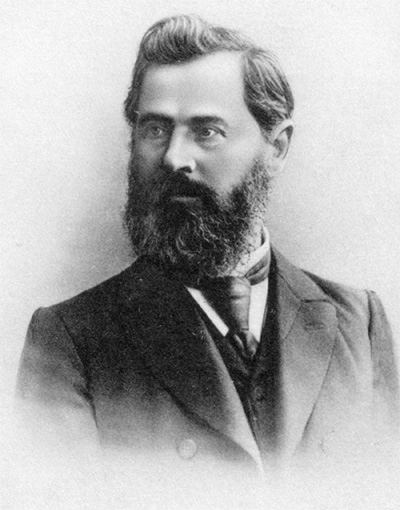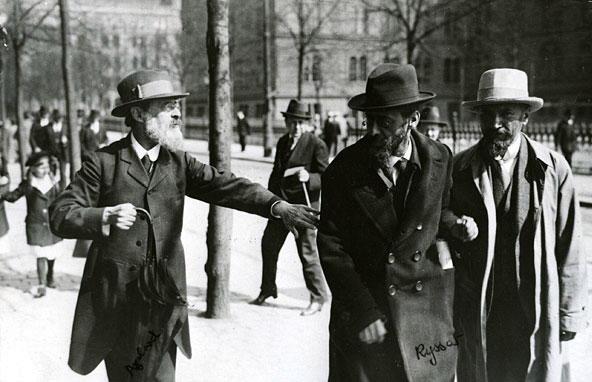<Back to Index>
- Menshevik Pavel Borisovich Axelrod, 1850
- Menshevik Alexander Martinov, 1865
PAGE SPONSOR

Pavel Borisovich Axelrod (Russian: Па́вел Бори́сович Аксельро́д August 25, 1850 – April 16, 1928) was a Russian Menshevik.
Born Pinches Borutsch (Russian: Пи́нхус Бо́рух) in Potscheff near Chernigov and raised to Shklov, a small provincial town in (currently Belarus) and Mogilev, the biggest town of the three in the Russian Empire (currently Belarus), Axelrod was the son of a Jewish innkeeper.
In 1875 in Geneva, Axelrod married his former private student Nadezhda Ivanovna Kaminer. A student himself, Axelrod was Kaminer's and her sister 's tutor. Despite severe financial hardship during the first years, the marriage proved to be successful. They had three children: Vera (22.11.1875), Alexander (18.07.1879) and Sofia (14.11.1881). Nadezhda Ivanovna Axelrod - Kaminer died in 1906.
In the mid - 1880s Axelrod established his own small company producing kefir. By the end of the 1890s, Axelrod's company had offices in Zurich, Geneva and Basel,
which provided steady income and allowed him to support
revolutionaries. In 1908, Axelrod sold his company in exchange for the
retirement payments to him from the new owner.
Influenced by Mikhail Bakunin in his youth, he remained an Idealist even after adopting the Marxist philosophy of historical materialism. Axelrod co-founded the Marxist group Emancipation of Labor in Switzerland with his lifelong friend Georgi Plekhanov and Vera Zasulich in 1883. In 1900, Axelrod, Plekhanov and Zasulich joined forces with younger revolutionary Marxists Julius Martov, Vladimir Lenin and Alexander Potresov and the six edited Iskra, a Marxist newspaper, from 1900 to 1903. When Iskra supporters split at the Second Congress of the Russian Social Democratic Labor Party in 1903, Axelrod sided with the Menshevik faction against Vladimir Lenin's Bolsheviks.
In 1917, after the February Revolution Axelrod returned to Russia. By then some Mensheviks had already joined Kerensky's Provisional Government and supported government war policy. Despite all his efforts Axelrod failed to gain Mensheviks' support for a policy of immediate peace negotiations with the Central Powers. After the Bolshevik victory, which Axelrod called a "historical crime without parallel in modern history", he toured the world rallying socialist opposition to the Bolsheviks.
Axelrod died in exile in Berlin in 1928.

Alexander Martinov (1865 – 1935) was a Menshevik before the Russian revolutions of 1917, and for a few years after the revolution an opponent of the Soviet government.
During 1901-2 Martinov was active on the journal of the Economist faction of the RSDLP, Rabocheye Dyelo publishing articles strongly criticized by Lenin in "What Is To Be Done? ''
He joined the Communist Party in 1923 as an opponent of the "Left Opposition." He was a chief architect of the "bloc of four classes".
Martinov was an advocate of the two stage theory, that a fully capitalist government was needed to run well into its course before Socialism and thereafter Communism could be possible.